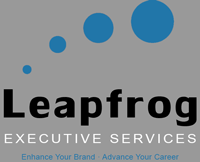Humility, Self-Preservation, and the Art of the Humblebrag
Category : 2019
“Nothing is more deceitful than the appearance of humility,”
(Jane Austen, Pride and Prejudice)
The Oxford English Dictionary contains more than 829,000 words, senses, and compounds. Over 2,000 words were added to this tome in 2018. Business evolution gave us new terms like e-signature, biohacking, force quit, and airplane mode. Shifts in culture produced notables like vape, binge-watch, a new meaning for the word snowflake, and humblebrag.
A humblebrag is making “an ostensibly modest or self-deprecating statement with the actual intention of drawing attention to something of which one is proud,” (Oxford Dictionary). Facebook, Twitter, Instagram, and LinkedIn provide a wide platform for executive humblebragging. Search #humblebrag on Twitter and the results are endless.
- A well-known comedian wrote, “Being famous and having a fender bender is weird. You want to be upset but the other driver’s (sic) just thrilled & giddy that it’s you.”
- One Hollywood celebrity shared, “Totally walked down the wrong escalator at the airport from the flash of the cameras. Go me . . . “
- A former White House Press Secretary bemoaned, “They just announced my flight at LaGuardia is number 15 for takeoff. I miss Air Force One!!”
Popular web articles attempt to help people traverse the humblebrag minefield with –
- How to Brag at Work (Without Sounding Like a Jerk)
- How to Humblebrag at Work to Get Ahead
- The Tricks to Bragging at Work Without Sounding Arrogant
The obvious implication is that regardless of what floor your elevator stops at, when you humblebrag you may not get ahead, you can sound like a jerk, and you may be perceived as arrogant. Life is full of trade-offs . . .
The Shakespearian question to brag or not to brag pops up in an executive interview with the oft-repeated, “Tell me about your biggest weakness.” The candidate is faced with deciding to be genuinely transparent about something he or she doesn’t do well, or choosing to feign humility while engaging in blatant self-promotion with a line like-
- So much international travel makes it difficult to build relationships with executives at my club.
- My drive for perfection makes me impatient with underperformers.
- I’ve been told my intellect makes it hard for people to relate to me.
- I’ve found I need to be more deliberate when discussing financials with my team-they don’t seem to grasp numbers as quickly as I do.
A famous 19th century orator noted, “I do hate, of all things, that humility which lives in the face.” Valid research concludes when you try wearing humility on your face, you need to leave room for the egg.
Francesca Gina and Michael Norton at Harvard teamed up with Ovul Sezer at the University of North Carolina to conduct a series of studies into humblebragging, presenting their findings in a paper titled Humblebragging: A Distinct-and Ineffective-Self-Presentation Strategy. Their experiments produced a straightforward conclusion-humblebragging doesn’t get you liked or respected because it is overshadowed by insincerity.
“Perceived sincerity is a critical factor in determining the success of self-presentation . . . We suggest that despite its prevalence, humblebragging may be ineffective in making a favorable impression due to the perceived insincerity it generates . . .” (Gina, Norton, & Sezer). The research went a step farther, noting that humblebraggers are not only considered less sincere, they are considered less competent than those who outwardly brag.
Here are four actions that will keep you out of the humblebrag vortex.
- Own who you are. No executive is omnicompetent and every executive has one or more areas of weakness. Glossing over a valid competence gap with a humblebrag redirect makes the executive look more like Houdini than a leader. People trust-and follow someone they know tells the truth-even when it doesn’t make the leader’s image shine. Don’t worry about what people think of you . . . they rarely do.
- Promote your contributions-not yourself. A brand is built on results, not rhetoric. There is nothing wrong with owning and talking about how you helped a company (if it isn’t all you talk about). If you bring on board a record of accomplishment-sell it. Just don’t try to disguise your obvious competence in a ruse of feigned humility or cloaked in a humblebrag.
- Pursue genuine humility. While rarely chosen as a corporate competence, humility is a quality we highly value in those who aren’t aware they have it. Humility isn’t denying one’s abilities or hiding one’s faults. Humility is leveraging your abilities every way possible while staying keenly aware of when you need others to complement your gaps. Ken Blanchard wisely notes that, “People with humility don’t think less of themselves, they just think of themselves less.”
- Be candid-and discreet. Avoiding humblebragging isn’t an invitation to be a walking tabloid about your life. Transparency expects truthfulness but doesn’t require full disclosure about every detail.
Author Gene Brown is right. “The really tough thing about humility is you can’t brag about it.”
